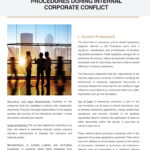Introduction
As the hospitality industry continues to evolve, hotel management agreements (HMAs) have become a popular way for hotel owners and operators to collaborate and maximize profitability. This type of arrangement is critical to the success of a hotel, defining the roles and responsibilities of each party and setting the foundation for a long-term partnership. In this comprehensive guide, we will explore the basics of hotel management agreements, their key components, and best practices for negotiating a successful HMA in Vietnam.
What is a Hotel Management Agreement?
A hotel management agreement is a legally binding contract between a hotel owner and a hotel operator (often a hotel management company). Under an HMA, the operator is responsible for managing the hotel’s day-to-day operations, while the owner retains ownership of the property and overall financial control. HMAs can vary in length, with some lasting for decades. They are designed to ensure that the hotel operates efficiently, generates revenue, and maintains high-quality standards.
Key Components of a Hotel Management Agreement
While each HMA is unique, there are several key components that should be considered:
- Term and Termination: The agreement should outline the duration of the contract and the conditions under which either party can terminate the agreement. This may include provisions for early termination in the event of underperformance, breach of contract, or other specific circumstances.
- Operator’s Responsibilities: The HMA should clearly define the operator’s responsibilities, including managing staff, marketing, sales, revenue management, and maintaining the hotel’s quality standards. The agreement should also specify the extent of the operator’s authority and decision-making power.
- Owner’s Responsibilities: The agreement should outline the owner’s responsibilities, such as providing financial support, maintaining insurance coverage, and complying with legal and regulatory requirements. The owner may also be responsible for capital expenditures and property maintenance.
- Performance Metrics: The HMA should establish performance metrics and benchmarks that the operator must achieve. These may include occupancy rates, revenue targets, guest satisfaction scores, and other key performance indicators (KPIs).
- Fees and Compensation: The agreement should detail the fees and compensation structure for the operator. This may include a base management fee, which is typically calculated as a percentage of the hotel’s gross revenue, and an incentive fee based on the hotel’s profitability or other performance metrics.
- Reporting and Accountability: The HMA should require the operator to provide regular financial and operational reports to the owner, including budget forecasts, revenue reports, and performance updates. This ensures transparency and allows the owner to monitor the operator’s performance.
- Intellectual Property: The agreement should address the use of trademarks, logos, and other intellectual property associated with the hotel brand. The operator may be granted a license to use the owner’s intellectual property for the duration of the agreement.
- Confidentiality and Non-Competition: The HMA should include confidentiality clauses to protect sensitive information and non-competition provisions to prevent the operator from managing competing hotels within a specified geographical area.
- Dispute Resolution: The agreement should include provisions for resolving disputes between the owner and the operator, such as arbitration or mediation.
Negotiating a Successful Hotel Management Agreement
To ensure a successful HMA, consider the following best practices:
- Choose the Right Operator: Conduct thorough research and due diligence to identify the best hotel operator for your property. Consider the operator’s experience, track record, and alignment with your hotel’s brand and target market.
- Clearly Define Roles and Responsibilities: Ensure that the HMA clearly outlines the roles and responsibilities of both the owner and the operator, leaving no room for ambiguity or misunderstandings.
- Establish Performance Metrics: Develop a set of measurable performance metrics and KPIs that the operator is expected to achieve. This provides a clear framework for evaluating the operator’s performance and incentivizes them to meet or exceed expectations.
- Negotiate Fair Compensation: Strike a balance between providing incentives for the operator to perform well and protecting the owner’s financial interests. Consider a mix of base fees and performance-based incentives to ensure that both parties are motivated to achieve the best possible results.
- Maintain Open Communication: Establish a communication protocol for regular updates, performance reports, and discussions. Open and transparent communication between the owner and the operator is essential for maintaining a strong partnership and addressing any issues that may arise.
- Be Flexible and Adaptable: Recognize that the hotel industry is constantly evolving, and both parties must be willing to adapt to changing market conditions. Ensure that the HMA includes provisions for reviewing and updating the agreement as needed.
- Include Exit Strategies: While it is crucial to focus on building a successful partnership, it is also essential to consider potential exit strategies. Include termination clauses in the HMA that outline the conditions under which either party can end the agreement, ensuring a clear and fair process if the need arises.
Conclusion
Hotel management agreements play a vital role in defining the partnership between hotel owners and operators. By understanding the key components of an HMA and following best practices for negotiation, both parties can establish a strong foundation for a successful and mutually beneficial relationship. As the hospitality industry continues to evolve, having a well-crafted HMA in place can be instrumental in achieving long-term success and profitability for your hotel.







